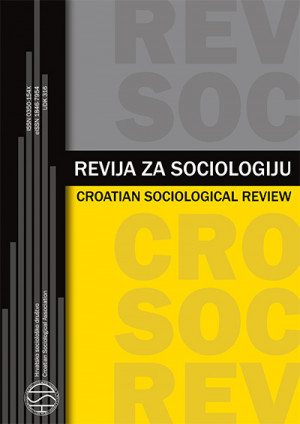Migracija, integracija i stavovi prema imigrantima u Hrvatskoj
Migration, Integration, and Attitudes towards Immigrants in Croatia
Author(s): Snježana Gregurović, Jadranka Čačić Kumpes, Josip KumpesSubject(s): Social Sciences
Published by: Hrvatsko sociološko društvo
Keywords: migration; integration; migration policy; attitudes towards immigrants; Croatia
Summary/Abstract: The paper is based upon the results of the research initiated under the assumption that joining the European Union will change Croatia’s migratory pattern; namely, the inflow of foreign workers will gradually increase, which will raise the question of their integration into Croatian society. The characteristics of the contemporary migration flows and migration policy are indicated in the first part of the paper, along with the theoretical approaches in studying attitudes towards immigrants, and some of the results pertaining to these studies. A description follows of Croatian society’s characteristics related to the expected changes within the migration pattern, which can be connected to formation of the attitudes towards potential foreign workers. In the central part of the paper the results of the survey conducted in 2009 on a representative sample (N = 1300) are presented and analysed. The attitudes of adult Croatian citizens towards foreign workers are examined, that is, their stance towards their possible entrance to the (local) labour market and their potential influence upon the culture and the values of Croatian society, and the social distancing towards them. The results revealed that, in spite of the fact that Croatian society has not yet been confronted with any marked inflow of immigrants that the respondents demonstrated a high degree of resistance towards their entry into Croatian society. In this connection, the potential foreign workers are seen to a large extent both as a socioeconomic and as a sociocultural threat, and therefore the respondents, on average, expressed unwillingness for closer contacts with them. This leads to the conclusion that if integration of immigrants is understood as a two-fold process in which a mutual openness towards change should be present, then the obtained research results indicate that mere institutional and normative readiness for the reception of foreign workers will not be sufficient; it will need to be accompanied by a significant social action oriented towards enhancement of the sensitivity of the local population to take an active part in this process.
Journal: Revija za sociologiju
- Issue Year: 42/2012
- Issue No: 3
- Page Range: 305-336
- Page Count: 32
- Language: Croatian

